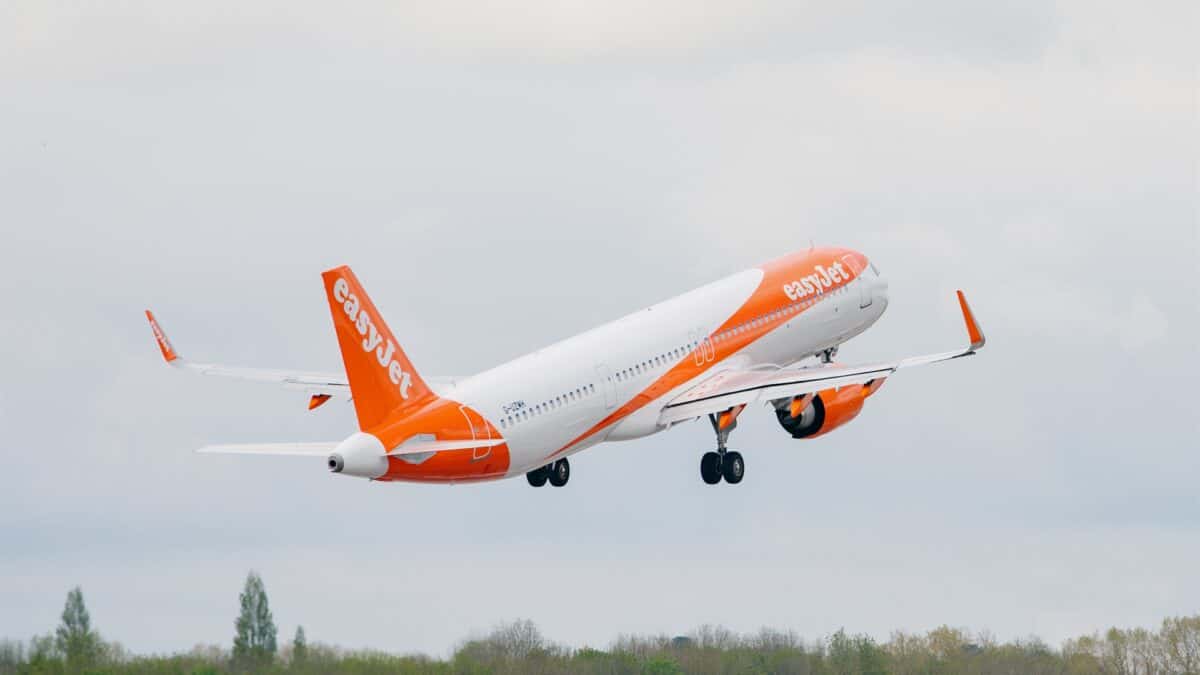Classic cyclical stocks like travel and leisure companies tend to underperform during tough economic periods. But easyJet (LSE:EZJ) has managed to defy the gloom, its share price rising almost 60% over the course of 2023.
The FTSE 250 company could be better placed than many of its industry peers. Its low-cost model is likely to make it more resilient than its more expensive rivals. In fact it could thrive in the new year as passengers switch down from costlier operators.
Another 59% share price rise in 2024 would take easyJet shares from current levels of 491.3p to 783p per share. Can the Luton airline do it? And should I add it to my UK shares portfolio?
Flying high

The last year has shown us that peoples’ strong desire to travel following the pandemic is yet to cool down.
easyJet’s November trading update illustrated this fact again and underlined its impressive momentum heading into 2024. The flyer printed record pre-tax profits for the second half of the last financial year (to September), a result that helped it swing to a full-year profit of £455m from a £178m loss a year earlier.
Passenger numbers leapt 19% over the year, to 82.8m. And encouragingly bookings for both its airline and package holiday divisions were higher year on year at the end of the last financial period.
A cheap UK share
| easyJet’s share price | 491.3p |
| 12-month price movement | +48% |
| Market cap | £3.7bn |
| Forward price-to-earnings (P/E) ratio | 8.5 times |
| Forward dividend yield | 2.6% |
| Dividend cover | 4.5 times |
Despite its impressive recent trading record, easyJet shares still carry a rock-bottom valuation. Not only does it trade on a forward P/E ratio of below 10 times, it also trades on a price-to-earnings growth (PEG) ratio of 0.3.
This reflects analysts’ predictions that yearly earnings will soar 27% during the current financial year. Any reading under one indicates that a stock is undervalued.
Should I buy easyJet shares?
I think the easyJet share price could continue to rise in 2024, helped by a (likely) reduction in interest rates as the year progresses. But I’m not planning to buy the FTSE 250 firm for my portfolio.
I think its low valuation reflects the swathe of risks it continues to pose to investors. Tough economic conditions across Europe still pose considerable danger to the travel sector’s post-pandemic recovery. So does growing geopolitical tension (the business has recently axed flights to Israel).
Profits are also endangered by rapid cost increases (headline costs at the business leapt 22% last year). In particular, it is vulnerable to a sharp rise in fuel costs if instability in the Middle East pushes up oil prices.
Further strike action by cabin crew and airport staff is another constant threat to profits. And finally, I am concerned by a possible UK crackdown on ‘drip pricing,’ where the adding of extras (like additional luggage and seat selection) can significantly bump up traveller bills. Such auxiliary services are a big money spinner for airlines.
While there’s a lot to be impressed by at easyJet, I still think there are better shares for me to buy in 2024.








